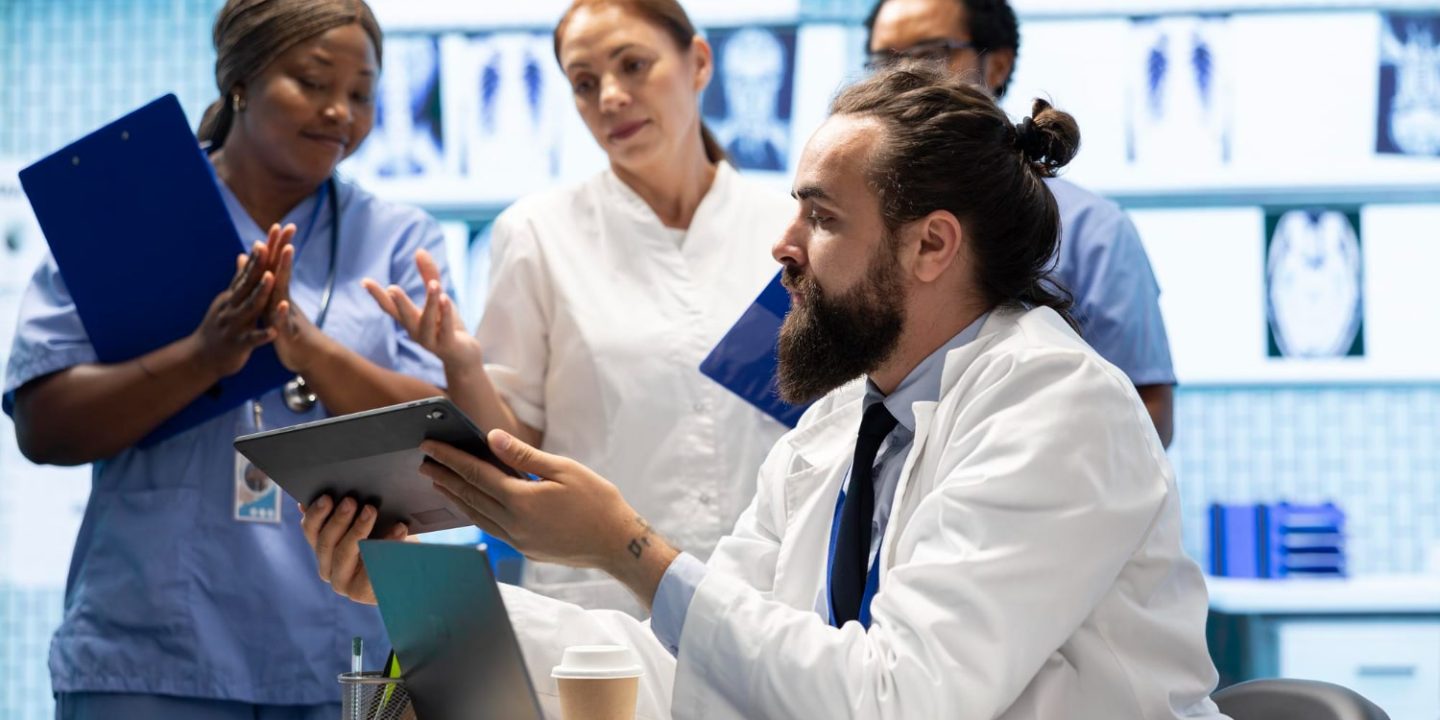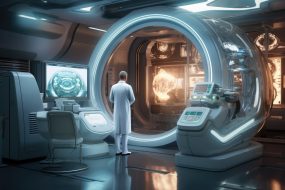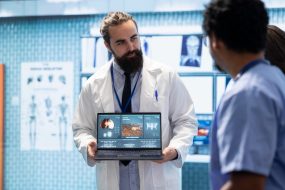- Home
- Technology & AI
- HHS Leaders Outline Plans to A ...

Leaders at the U.S. Department of Health and Human Services (HHS) are emphasizing the role of artificial intelligence (AI) and data interoperability in improving patient care and making the healthcare system more efficient. The Trump administration has expressed its intent to accelerate the deployment of AI-driven tools and expand access to health data.
Amy Gleason, acting administrator of the U.S. Digital Operations Government Service and strategic advisor at the Centers for Medicare & Medicaid Services (CMS), said the government’s role should focus on establishing infrastructure while allowing private industry to innovate.
In late July, CMS launched the Health Technology Ecosystem Initiative and Interoperability Pledge. The agency’s priorities include building an interoperability framework and supporting the use of personalized digital health tools. CMS also plans to establish an app store featuring approved health applications, integrate AI-based chatbots to improve access to healthcare information, and require applications to use modern identity systems.
Gleason said empowering patients, physicians, and payers with better access to data can help reduce costs. She added that her interest in healthcare technology was influenced by her personal experience navigating her daughter’s treatment for a rare autoimmune condition, which involved multiple specialists and health systems. Gleason said she believes broader data sharing and modern AI could have accelerated her daughter’s diagnosis and continues to see AI tools as valuable in managing chronic illness.
Sixty companies have joined the Health Technology Ecosystem Initiative and are expected to demonstrate results by the first quarter of 2026. Gleason said the program will introduce new goals every six months.
As part of broader efforts to improve infrastructure, CMS is developing a national provider directory using FHIR-based APIs and adding modern digital identity features to Medicare.gov. Gleason said these projects illustrate how government can create foundational systems while private companies build applications on top of them. She noted that CMS is consolidating data from eight provider databases into one source to improve accuracy and reduce duplication across the industry.
The CMS is also expanding its internal technical capabilities. Gleason stated that when she joined the agency, there were only 12 engineers compared to thousands of contractors. She said the agency is now recruiting experienced technology professionals from both large companies and startups for short-term government service roles.
An HHS official said that the department is also hiring AI and data specialists across its divisions, including the Centers for Disease Control and Prevention (CDC).
The official added that HHS deployed a large language model to its 60,000 employees in September, with thousands using it weekly for tasks such as summarizing research papers, and that the agency aims to expand AI use internally while ensuring it benefits providers and patients.







